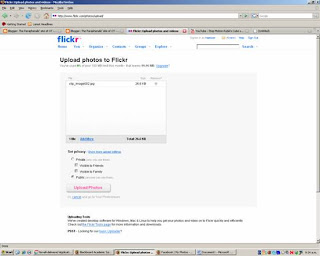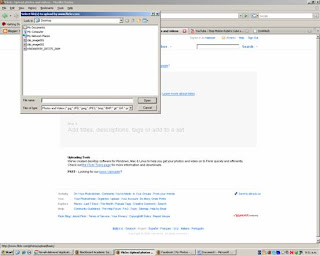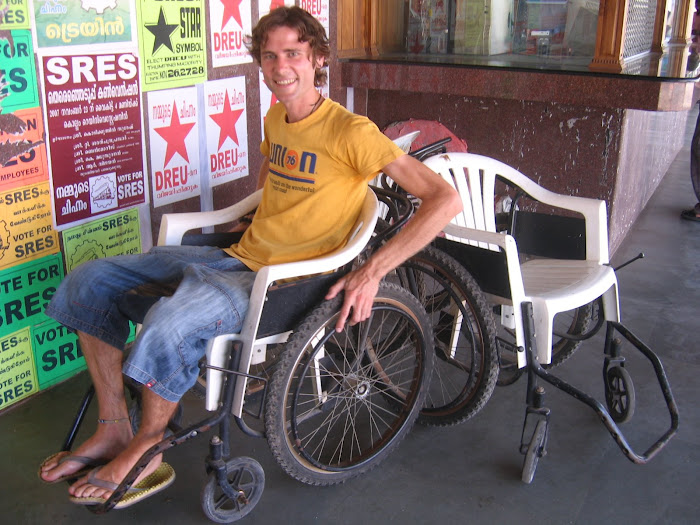Tutorial Six: The internet and online communities
Provide the web address and the name of the community you are investigating
Travellerspoint Travel Community
What is the brief or focus of this community?
An online community for travellers - Nurturing Travel Addictions for over 100,000 travellers worldwide!
Whether planning a trip, on the road, or sharing travel experiences, Travellerspoint is where the journey begins!!
Travellers point is a place where people can discuss travel plans, find a travel companion, share ideas and tips and learn more about travelling destinations....YYEEAAAHHH!!!!!
"Travellerspoint's objective is to enrich the travelling experience by offering numerous services, content and products that have significant perceived and added value for travellers worldwide. To travel means to meet other people, experience their cultures and to make, but also to keep good friends. By bringing more people together - albeit before, during or after travelling - Travellerspoint will create more understanding for different cultures and countries and ultimately a better world for everyone to travel in."
Retrived May 312008, from http://www.travellerspoint.com/about.cfm
What services are provided? How interactive is this site? How can people contribute?
Services provided on Travellerspoint:
- Travel guides to destinations around the world
- Accommodation
- Photography
- Travel blogs
- Travel help - discussion board
- Projects and volunteer opportunities
- Non-Destination Articles & Special Pages
Once you become a member of Travellerspoint you can contribute by sharing your insight into the places you visit, answer questions from other travellers and advise others out there of 'tips and traps'!
You can add and edit articles, or just wile away the hours as you virtually travel the globe….ahhhh……
Consider material presented during the lecture and make comment on why people choose to contribute to this community. What is it they are seeking?
Travellerspoint is a convenient form of communication between people who travel! It allows silent observation prior to participation, giving insight and provoking motivation! ….mmmmm where to next?....
It provides large amounts of information, and connections for people from great distances. It also gives people the ability to connect with people of similar interests (travel!) share tips and give and receive advice.
Cut and paste an example of the type of topics being discussed (you may have to provide a context to your excerpt).
Recent discussions:
Tours vs DIY…..
If you are a 'Do It Yourself' traveler, would you still consider a tour in some countries for safety reasons??
General Talk | Started by jaxstar84 [18th May]
ATM's in S.E. Asia
What is the average maximum amount of cash you can withdraw from an ATM machine in
Asia | Started by -Charlie [16th May]
Considering material presented during the course and make comment on the potential ethical issues that may arise in this community.
Ethical Issues….
There is potential for ethical misuse, as people can sign in with a different username and add false information. Also what ever you write is viewed by anyone so there is a potential that someone may recognise you through the information you have provided (only a real concern if you are wanting to remain anonymous).
Lack of identity: There is the possibility for people working in the travel and tourism sector e.g. travel agencies to access and post material on destinations for the benefits of their own, i.e. exaggerating and advising of places ‘not to visit’ unless arranged prior through a travel agent.
Misuse and termination on travellerspoint…
Travellerspoint reserves the right to remove any member account, including but not limited to all trips, travel maps, forum posts, blog and diary postings, and any other related information for offences, e.g advertising to sell any goods or services for any commercial purpose, conducting and displaying, or forwarding surveys, contests, pyramid schemes, "spam" or chain letters.
In the case you violate terms (for more information refer to website ), Travellerspoint has the right to terminate your account and refuse you access and membership. In the case of a serious violation, Travellerspoint may file suit against you for business interference or any other appropriate legal theories. In these cases Travellerspoint will seek compensation from you for lost revenue and any potential damage to Travellerspoint's reputation caused by your actions.
Further adding…”If you are aware of any possible misuse of this Website or any other actions or content which might be in breach of these Terms, please contact abuse@travellerspoint.com.”
Consider material presented during the lecture and make comment on the benefits this community holds over traditional notions of community e.g. communities reliant on geographic proximity.
Geographically distance is not a factor, travellerspoint provides information that anyone with internet access can browse and become a member of if they choose. It can compliment real life communities offering a rich source of knowledge while also providing connections over great distances to site users instantly.
Consider material presented during the lecture and make comment what this community lacks or can not provide which traditional communities can.
Typical limitations of online communities include:
- Misuse and validity of certain information being shared
- Limited communication tools, e.g. online as opposed to talking face to face.
- Reliance on virtual communities, i.e. being a computer based traveller as opposed to getting out there and doing it!!!
- Possible access limitations in certain pockets of the world, especially for those users who are on the road and unable to access the website.
….in conclusion a FANTASTIC website/online community but nothing beats getting out there and doing the country yourself!!.....





